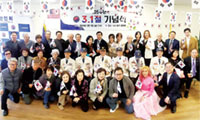Some of the people who are upset have a false view of how life works. Since Thomas Hobbes, many people have embraced the illusory notion that society is made up of individuals. According to this view the only fair competition is between individuals, without undue benefit from family connections.
But no society has ever been this way. Individuals don’t come fully formed. They emerge out of families and groups. The family and the group are the essential social unit. These collectives have always shaped public life.
According to some surveys, 90 percent of businesses around the world are family-operated businesses. Much research suggests that in the U.S., family-run businesses outperform non-family-run businesses, especially while the founder is still alive.
Politics, too, has always been a dynastic affair. If Hillary Clinton wins the presidency, then 10 of the 45 presidents will have had a family member precede or follow them in the White House. According to my colleagues at The Upshot, among boomers, the son of a senator was 8,500 times more likely to become a senator than the average American male.
Things look the same on the state level. In New York there are Cuomos. In California, Browns. Out West the joke is that voters should just vote for the closest Udall.
If you look around the globe, these pseudo-monarchical tendencies seem to be on the increase, not on the decrease. There are Aquinos in the Philippines, Nehru-Gandhis in India, even Le Pens in France. Now that women are more empowered, each dominant clan has essentially doubled the size of its talent pool, so family influence is increased.
Why do the members of dynastic families do so well? Some of the reasons are obvious and unfair: brand names and fund-raising networks. Jeb Bush and Hillary Clinton get the benefit of their family members’ fame. Their donor networks are already in place. These advantages will not necessarily make them better presidents.
But in other ways we should be grateful that in each field of endeavor there are certain families that are breeding grounds for achievement. We should be grateful that there are Bachs in music, Griffeys and Molinas in baseball, Brontes and Amises in novel writing and Kennedys, Roosevelts, Clintons and Bushes in politics. These families make life more unfair for the rest of us (because it’s harder for others to compete against them), but they also make society as a whole more accomplished.
Powerhouse families nurture achievement in many ways. First, there’s identity formation. If you grow up in a musical family you’re more likely to think of yourself as a musician at a young age. You can get your 10,000 hours of practice in early, which is a huge leg up.
Second, there is the realm of practical knowledge. Very little of the knowledge you need to succeed in a trade can be taught in the classroom or read about in a book. It can only be imparted by example. If you’re a Nancy Kassebaum and you grow up around your dad, Alf Landon, as he conducts a meeting, works a room or reacts to victory or defeat, you’re more likely to have an intuitive feel for how the craft of politics is done.
Third, there is the level of skills. The philosopher Michael Oakeshott once observed that it takes three generations to make a career. That is, the skills that going into, say, a teacher — verbal fluency, empathy, endurance — take a long time to develop. They emerge in grandparents and great-grandparents and are passed down magnified through the generations. I bet you can trace ways your grandparents helped shape your career.
Fourth, there is audacity. It is very odd to think you should be president of the United States. But if you grow up in the Kennedy or Bush families it is apparently less odd.
Fifth, there is the time horizon. There are many reasons family businesses do better, for a time, than nonfamily businesses. The senior people are connected by intense and sometimes altruistic bonds of trust. But one reason is that families often run the business for the long term, to pass it down as a legacy to those not yet born.
Sunday is Mother’s Day, when we celebrate the powerful ways mothers shape their children. Families are unequal. Some mothers — and some fathers, husbands and wives — shape their kin with extraordinary power, and in certain directions. We should fight unfair advantages like legacy admissions, but we wouldn’t want to live in a society in which family influence didn’t happen.
스마터리빙
more [ 건강]
[ 건강]이제 혈관 건강도 챙기자!
[현대해운]우리 눈에 보이지 않기 때문에 혈관 건강을 챙기는 것은 결코 쉽지 않은데요. 여러분은 혈관 건강을 유지하기 위해 어떤 노력을 하시나요?
 [ 건강]
[ 건강]내 몸이 건강해지는 과일궁합
 [ 라이프]
[ 라이프]벌레야 물럿거라! 천연 해충제 만들기
 [ 건강]
[ 건강]혈압 낮추는데 좋은 식품
[현대해운]혈관 건강은 주로 노화가 진행되면서 지켜야 할 문제라고 인식되어 왔습니다. 최근 생활 패턴과 식생활의 변화로 혈관의 노화 진행이 빨라지고
사람·사람들
more
[제52회 코리안 퍼레이드 참가 단체] “한인 커뮤니티 위상 제고”
■ 충청향우회남가주 충청향우회(회장 명원식)가 올해도 역시 코리안 퍼레이드에 참여해 충청인의 화합과 자긍심을 선보일 예정이다.충청향우회는 19…

[제52회 코리안 퍼레이드 참가 단체] “다양한 세대 힘모아 힘찬 행진”
■ LA 동부한인회LA 동부한인회(회장 최현무)가 올해 처음으로 제52회 코리안 퍼레이드에 참가해 LA 동부 지역사회를 대표하는 한인회의 위상…
“문화의 길을 춤으로 잇다”
이정임 무용단(단장 이정임)이 기획한 대표작 ‘비단길’ 공연이 이번 제52회 LA 한인축제의 무대에서 선보인다.이정임 무용단은 ‘비단길’ 작품…
한국 전통민요 알리기 ‘노래자랑’
캘리포니아에서 한국 전통 민요를 알리고 있는 ‘TK-SORI 신명’(대표 신윤희·사단법인 판소리 교육개발 진흥회)이 주최하는 ‘제5회 캘리포니…
[제52회 코리안 퍼레이드 참가 단체·벨·가필드 …
이번 주말로 다가온 18일(토) 제52회 LA 코리안 퍼레이드의 화려한 행렬 속에서 가장 연도 관람객들의 흥을 돋우며 박수와 환호를 받는 주인…
많이 본 기사
- “일부러 비싼 물만 마셨는데 암이라니”…생수 라벨 반드시 확인해야 하는 이유
- 트럼프 “인도, 러석유 안 사기로 했다”… “베네수 지상타격 검토”
- 트럼프 “한국 ‘3천500억 달러 선… 1
- 美언론, 국방부 보도통제에 반발해 출입증 반납하고 기자실 비워
- 동남아 범죄단지 지배하는 中조직…납치·사기 배후에 ‘삼합회’
- MIT 이어 브라운대도 트럼프 행정부의 ‘反DEI’ 협약 거부
- “한미, 트럼프 방한 앞 무역협상 집중…미일 합의와 유사할 것”
- 챗GPT 성인물 허용 논란에 올트먼 “우리는 도덕경찰 아냐”
- “구찌, 비싸게 파는 이유가 고작 이… 1
- ‘세기의 이혼’ 최태원-노소영 오늘 대법 선고…재산분할 결론은
- 백악관 “셧다운에 공무원 해고 만명 넘을듯”…법원은 제동
- 이민요원 무차별 검문… 합법이민자도 ‘불안’
- 불황 오면 립스틱 산다? “이젠 옛말”…외신이 꼽은 6가지 ‘불황 단서’는 [글로벌 왓]
- 이스라엘·하마스, 트럼프 가자 평화구상 2단계 협상 개시
- 모기지 이자율 떨어지자‘북적북적’
- APEC ‘빛의 향연’ 펼쳐진 경주
- 주택 소유주들 모기지 조기상환 ‘고민… 1
- 뉴욕증시, 뒤엉킨 재료에 극도의 변동성…혼조 마감
- 볼거리·먹거리 ‘풍성’… 역대급 축제 내일 막오른다
- 앤스로픽, 최신 소형 AI 모델 출시… “더 저렴하고 빨라”
- 메타, 텍사스주에 1GW 규모 AI 데이터센터 추가 건설
- 연준 마이런 “미중 무역갈등 살아나…금리 더 빨리 내려야”
- 5선 국회의원 지낸 이상민 국민의힘 대전시당위원장 별세
- “AI시대 교회문화도 바뀌어야 한다” 1
- 영주권 증명서 지참 안했다고 벌금 합법 이민자도 무차별 단속에‘긴장’
- 김건희 “수익 40% 주기로 해”…법… 1
- 뉴저지 자동차보험료 ‘미친 급등세’
- 1,430원 돌파 환율 ‘충격’ 1,600원대 근접 전망까지
- ‘광복 80주년, 우리가 대한민국’ 행사 개최
- 연준 베이지북 “관세 영향으로 사업자들 비용 상승 현실화”
- 韓 최악의 시나리오 피했다, 10월 피파랭킹 오히려 상승 전망... 월드컵 포트2 ‘일단’ 수성
- 주춤대는 미국, 내달리는 중국
- 박나래, ‘이시언 주선’ 소개팅에서 거절 당했다..상대=뮤지컬 배우
- 3년 숙성한 생선으로 만든다고?… 일본서도 찾아오는 스시집
- 아마존, 연말 샤핑시즌 앞두고 25만명 채용
- JP모건 다이먼 “최근 발생 車대출업체 파산, 신용과잉 초기징후”
- “성인 5명 중 1명… 집값·의료비 못내”
- 오타니 NLCS 7차전 ‘끝장승부’ 가면 불펜 대기한다, 4차전 선발 확정
- 가주 최우수 대학… 칼텍·스탠포드 순
- 노벨상, 맥아더상, 필즈상, 튜링상…
- “최고 권위, 정부 포상”..지드래곤 ‘문화훈장’ 받고, 변우석은 ‘문체부장관 표창’ 받는다
- 박서준도 술 판다..日 위스키 회사 설립→ “12월 16일 생일 착안”
- “2024년도 IRS 세금보고, 오늘 마감해야”
- 선우용여 “故남편=세종대왕 충신의 후손..매우 강직했다”
- 20억 달러 잭팟 당첨된 복권 갑부 산불 피해 고향마을에 거액 투자
- 미국서도 중국발 피싱 기승…3년간 10억달러 범죄수익 챙겨
- 오픈뱅크, 14년간 커뮤니티에 2,300만달러 ‘쾌척’
- 무역협상타결 가시권…韓 “빠른속도로 조율” 美 “10일내로 예상”
- 롬니 전 의원 가족 발렌시아서 숨져
- 트럼프, 베네수엘라 독재정권 겨냥 ‘CIA 비밀공작’ 승인
1/5지식톡

-
 식당용 부탄가스
0
식당용 부탄가스
0식당용 부탄가스 홀세일 합니다 로스앤젤레스 다운타운 픽업 가능 안녕 하세요?강아지 & 고양이 모든 애완동물 / 반려동물 식품 & 모든 애완동물/반려동물 관련 제품들 전문적으로 홀세일/취급하는 회사 입니다 100% …
-
 ACSL 국제 컴퓨터 과학 대회, …
0
ACSL 국제 컴퓨터 과학 대회, …
0웹사이트 : www.eduspot.co.kr 카카오톡 상담하기 : https://pf.kakao.com/_BEQWxb블로그 : https://blog.naver.com/eduspotmain안녕하세요, 에듀스팟입니다…
-
 바디프렌드 안마의자 창고 리퍼브 세…
0
바디프렌드 안마의자 창고 리퍼브 세…
0거의 새제품급 리퍼브 안마의자 대방출 한다고 합니다!8월 23일(토)…24일(일) 단 이틀!특가 판매가Famille: $500 ~ $1,000Falcon: $1,500 ~ $2,500픽업 & 배송직접 픽업 가능LA…
-
 바디프렌드 안마의자 창고 리퍼브 세…
0
바디프렌드 안마의자 창고 리퍼브 세…
0거의 새제품급 리퍼브 안마의자 대방출 한다고 합니다!8월 23일(토)…24일(일) 단 이틀!특가 판매가Famille: $500 ~ $1,000Falcon: $1,500 ~ $2,500픽업 & 배송직접 픽업 가능LA…
-
 미주 한인 세무사 전국 대회- 20…
0
미주 한인 세무사 전국 대회- 20…
02025 전미한인세무사협회 컨퍼런스2025 THEME: Navigating New Frontiers(국제조세, 부동산투자, 블루오션 시장이라는 키워드를 아우르면서, 세무사들이 기존의 영역을 넘어 새로운 기회를 탐색…
케이타운 1번가
오피니언
 정숙희 논설위원
정숙희 논설위원노벨상, 맥아더상, 필즈상, 튜링상…
 파리드 자카리아 워싱턴포스트 칼럼니스트 / CNN ‘GPS’ 호스트
파리드 자카리아 워싱턴포스트 칼럼니스트 / CNN ‘GPS’ 호스트 주춤대는 미국, 내달리는 중국
 김동찬 시민참여센터 대표
김동찬 시민참여센터 대표 [미국은 지금] 씨를 뿌려야 새싹이 자란다
 이현숙 수필문학가협회 이사장
이현숙 수필문학가협회 이사장 [수요에세이] 살리나스에서 만난 스타인백
 최형욱 / 서울경제 논설위원
최형욱 / 서울경제 논설위원[만화경] 멀어지는 ‘5대 경제 강국’ 꿈
 민경훈 논설위원
민경훈 논설위원‘죽음의 상인’ 과 ‘평화의 후원자’
 황의경 사회부 기자
황의경 사회부 기자서민 경제를 덮치는 관세 인플레
 하태욱 주 알마티 총영사
하태욱 주 알마티 총영사 [기고] 카자흐스탄 고려인의 감사, 기억, 유산
 김채연 고려대 심리학부 교수
김채연 고려대 심리학부 교수 [삶과 문화] 둥근 보름달에 소원을 비는 마음
1/3지사별 뉴스

1,430원 돌파 환율 ‘충격’ 1,600원대 근접 전망까지
미·중 무역 갈등 문제가 다시 불거지면서 원화 값이 하늘 높은 줄 모르고 치솟고 있다. 원·달러 환율이 심리적 저항선인 1,400원선을 훌쩍 …
뉴저지 자동차보험료 ‘미친 급등세’

모기지 이자율 떨어지자‘북적북적’
지난 9월 미국의 기준 이자율이 인하된 이후 부동산 비수기 속에서도 워싱턴 메트로 지역의 부동산 시장에는 예비구매자가 몰리는 등 활기를 띄고 …
민주, 문자 스캔들에 발목 묶였다

APEC ‘빛의 향연’ 펼쳐진 경주
이번 달 말 경주에서 열리는 APEC 정상회의를 앞두고 15일 오후 경북 경주시 보문단지 호반 광장에서 APEC 보문단지 야간경관개선 ‘빛의 …
‘광복 80주년, 우리가 대한민국’ 행사 개최

오늘 하루 이 창 열지 않음 닫기 


















































.png)


댓글 안에 당신의 성숙함도 담아 주세요.
'오늘의 한마디'는 기사에 대하여 자신의 생각을 말하고 남의 생각을 들으며 서로 다양한 의견을 나누는 공간입니다. 그러나 간혹 불건전한 내용을 올리시는 분들이 계셔서 건전한 인터넷문화 정착을 위해 아래와 같은 운영원칙을 적용합니다.
자체 모니터링을 통해 아래에 해당하는 내용이 포함된 댓글이 발견되면 예고없이 삭제 조치를 하겠습니다.
불건전한 댓글을 올리거나, 이름에 비속어 및 상대방의 불쾌감을 주는 단어를 사용, 유명인 또는 특정 일반인을 사칭하는 경우 이용에 대한 차단 제재를 받을 수 있습니다. 차단될 경우, 일주일간 댓글을 달수 없게 됩니다.
명예훼손, 개인정보 유출, 욕설 등 법률에 위반되는 댓글은 관계 법령에 의거 민형사상 처벌을 받을 수 있으니 이용에 주의를 부탁드립니다.
Close
x